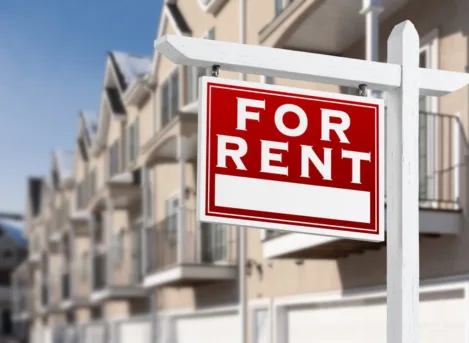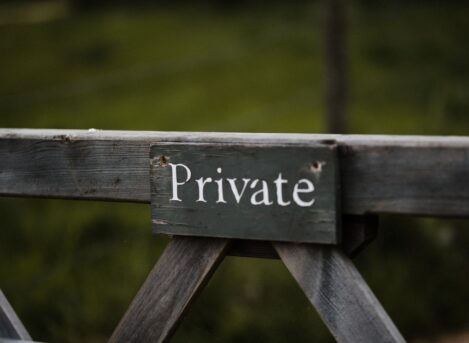As COVID-19 continues to imperil the health of Americans, many state and local leaders have ordered businesses to close or to reduce services. In Rhode Island, for example, Governor Raimondo ordered restaurants to cease offering dine-in service and subsequently ordered, among others, entertainment venues, barbershops, and hair salons to close.[1] Other states have ordered residents to “shelter-in-place” and ordered all nonessential businesses to close. As business closings continue and perhaps even expand, commercial landlords and tenants will be examining their rights and obligations.
The lens through which parties should first view the prevailing circumstances is practicality. Tenants who need relief from rent obligations should first discuss the issue with their landlords. Landlords, knowing that some of their tenants’ businesses have closed or have been severely curtailed, should contact those tenants to open a dialogue. Tenants hoping to fully reopen will want to have a good working relationship with their landlords, and landlords will likely have an easier time retaining tenants that reopen as opposed to finding new ones in an uncertain environment. Thus, working out a mutually agreeable arrangement may be the best option for all involved.
One recent illustration of this situation involves the restaurant chain Cheesecake Factory. On March 25, 2020, Cheesecake Factory wrote to its landlords advising them that it would not pay rent on April 1 and asking the landlords to work with the restaurant chain as it makes its way through the current situation.[2] Cheesecake Factory did not cite a legal doctrine but instead referenced its “long-standing business relationships” with its landlords.[3] In fact, the letter did not take a negotiating posture but rather told landlords that rent would not be paid. This stance may come from Cheesecake Factory’s market position—it operates 294 restaurants in the United States and Canada. The tenor of the letter, however, made clear that Cheesecake Factory wants to work with its landlords, preserve those relationships, and resume normal operations as soon as practicable.
Another practical reality is that the mechanism through which landlords might otherwise seek to evict tenants may be currently unavailable. In Rhode Island, courts are closed for nonemergency matters until at least April 17,[4] and, while a court spokesperson confirmed that tenants that have already been ordered evicted may be removed, no new eviction proceedings may be instituted.[5] In Massachusetts, in-person appearances are limited to emergency matters until at least April 6.[6] When those orders are eventually lifted, evictions may once again become possible, but in the meantime, the avenues for relief or remedies are limited.
The first place parties should consult when considering their legal options under a commercial lease is the lease itself, which might include applicable provisions concerning termination of the lease and/or rent abatement. Below are some of the issues that commercial tenants and landlords should consider.
If the commercial lease includes rent abatement provisions, they might be applicable to prevailing circumstances arising from the response to COVID-19. For example, some retail leases have co-tenancy clauses, which allow tenants to reduce the amount of their rent payments when another tenant leaves. Given the state and local government responses to COVID-19—especially business closings and shelter-in-place orders—and the public’s social distancing efforts, those clauses could be implicated in the coming months. Other rent-abatement provisions may similarly become relevant. A clause abating rent in the event that space is not tenantable, however, may provide relief only if the space actually cannot be occupied, as opposed to ordered closed by the government. As noted above, preserving the ongoing relationship between landlord and tenant, with an eye towards the return of normalcy, counsels in favor of the parties consulting with one another earlier rather than later to make the best of very trying circumstances.
Other legal concepts might provide tenants remedies in the current environment. The legal doctrine of frustration of purpose of a contract typically applies when the purpose that has been frustrated was the foundation of the contract.[7] However, it is not enough that the purpose has become more expensive.[8] In one case, the Rhode Island Supreme Court held that developing a piece of land into a condominium was not a shared purpose of the sale because the seller’s purpose was merely to sell the land.[9] The Court also held that although the construction of the condominium was made more expensive, the construction was not entirely frustrated, and the parties were sophisticated and could appreciate the risks.[10] For a tenant to avoid its obligations through the doctrine of frustration of purpose, the tenant would need to show that it and its landlord have a shared purpose in the operation of the tenant’s business, as opposed to merely a shared purpose in the rental of the property, and that the frustration was substantial and the purpose was not merely made more expensive or less profitable. Restaurants, unable to offer dine-in service by directive of the Governor, may have trouble showing that either their purpose was shared by their landlord or that, even if shared, it was entirely frustrated even though they could offer takeout. These determinations likely would depend on the facts and circumstances of the lease and the duration of the measures meant to limit the spread of COVID-19.
A tenant might also invoke the force majeure clause in its lease. As discussed in a previous AP&S blog on COVID-19, a force majeure clause may excuse performance under a contract.[11] Parties to commercial leases should consult their leases to determine what events are considered force majeure events and what performance may be excused by them.
While much of the economic impact on landlords and tenants has been caused by governmental efforts to limit the spread of COVID-19, businesses that have been forced to close would likely have an uphill battle to prevail on a claim for compensation for a governmental taking, especially since the governmental actions have been premised on emergency powers and exigent circumstances. The Rhode Island Supreme Court recently considered a taking case arising out of the pension reform, which dealt with a different crisis. That Court held that because the governmental action was limited, temporary, and perspective, there had been no taking by the temporary suspension of retirees’ cost of living adjustments.[12] Courts might similarly hold that the currently forced business closings represent the necessary exercise of police powers and therefore require no compensation.[13]
As with any contract issue, the first place parties should look is the terms of their leases. While those terms or legal doctrines might create avenues to avoid or change obligations regarding rent, the more fruitful approach may be negotiation with each other.
[1] See https://www.wpri.com/health/coronavirus/raimondo-covid-19-update-sunday/; https://www.providencejournal.com/news/20200316/raimondo-shutting-dine-in-restaurants-bars-for-2-weeks-rsquocommunity-spreadrsquo-of-virus-now-seen-in-ri.
[2] See https://la.eater.com/2020/3/25/21194144/cheesecake-factory-rent-strike-chain-restaurant.
[3] Id.
[4] Executive Order, No. 2020-04, Mar. 17, 2020.
[5] https://www.providencejournal.com/news/20200320/ri-evictions-can-go-on-in-limited-cases
[6] Order Limiting In-Person Appearances in State Courthouses to Emergency Matters that Cannot Be Resolved Through a Videoconference or Telephonic Hearing, OE-144, Mar. 17, 2020.
[7] See, e.g., Tri-Town Const. Co. v. Commerce Park Assocs. 12, LLC, 139 A.3d 467, 475 (R.I. 2016).
[8] Id.
[9] Id.
[10] Id.
[11] See https://www.apslaw.com/its-your-business/2020/03/12/covid-19-a-force-majeure-event.
[12] Cranston Police Retirees Action Comm. v. City of Cranston, 208 A.3d 557, 583 (R.I.), cert. denied sub-nom. Cranston Police Retirees Action Comm. v. City of Cranston, Rhode Island, 140 S. Ct. 652, 205 L. Ed. 2d 386 (2019).
[13] See Annicelli v. Town of S. Kingstown, 463 A.2d 133, 139 (R.I. 1983) (holding that “regulations that are reasonably necessary to protect the public health and safety are permissible exercises of the police power” and do not require compensation).








